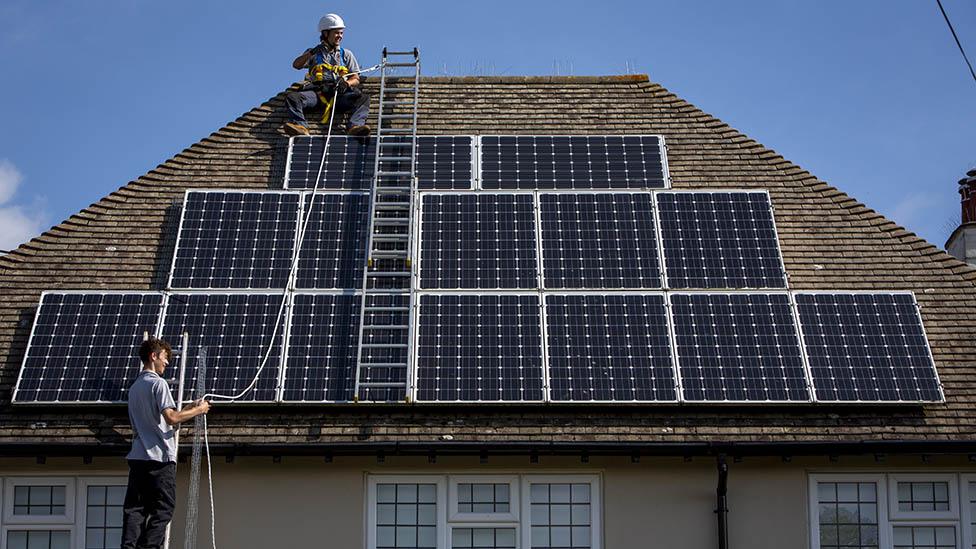Cost of living: Off-gridders are one step ahead in energy crisis
- Published
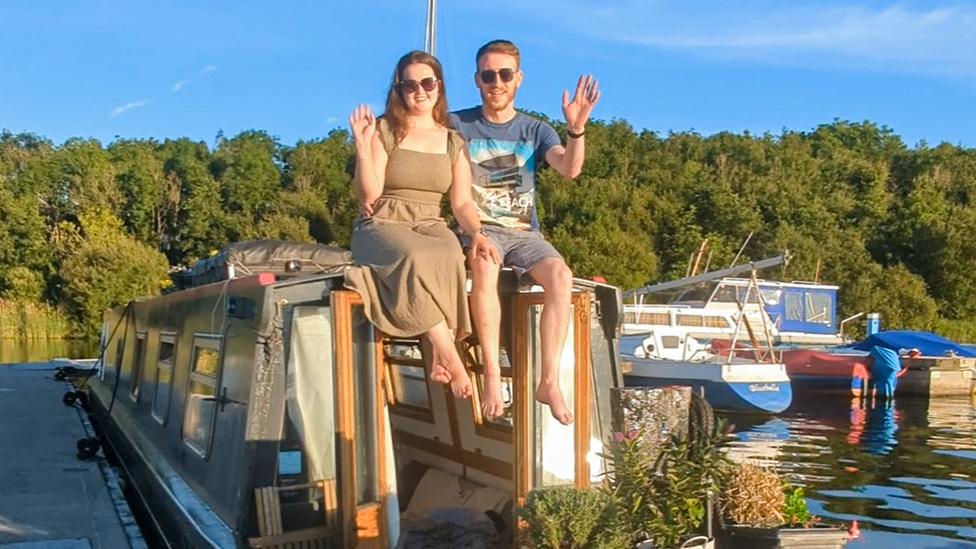
Sophie and Josh, who live in a narrowboat on Lough Erne, are not tied to traditional energy bills
While many people are dismayed by the soaring cost of energy, a select few across Northern Ireland remain somewhat unaffected.
Off-grid living has become a popular alternative in recent years.
Clever conversions and floating homes are now increasingly common as people avoid the ties of a traditional property.
Many of those efficient homes generate their own energy using sustainable, low-cost solutions.
Steve Golemboski-Byrne, his wife Claire and their daughter Lyra live in a self-sustained stone and straw bale 1840s cottage near Ballyroney, County Down.
Lackan Cottage Farm, described as "a centre for practical sustainability", is the the first accredited LAND (Learning and Network Demonstration) centre on the island of Ireland, with the family regularly hosting visitors interested in their way of life.
They have lived-off grid for 12 years - first in a converted horse truck, before moving to the cottage a decade ago in a bid to find a way to live without the burden of as many bills.
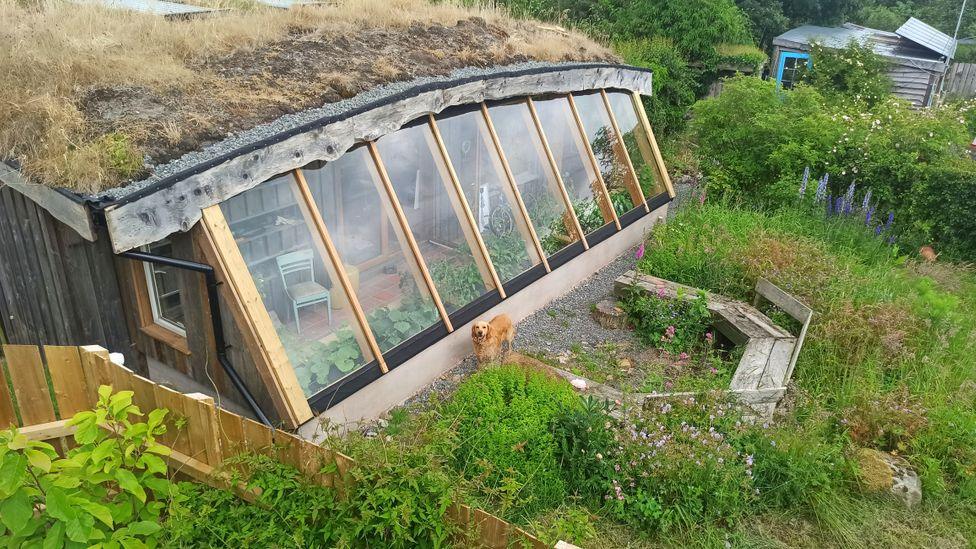
The Golemboski-Byrnes are fully self-sufficient, using solar and wind as their energy sources
There were additional motivations to the move.
"Partly from awareness of the desperate climate situation and the need to consume less; and partly from having realised that eventually some crisis would come along that would cause resource shortage and resultant rise in costs," said Steve.
"And here we are."
The family are 100% off-grid, although Steve says they are not dogmatic about it having been more successful in certain areas than others.
The cottage's primary energy source is solar electricity panels, also known as photovoltaics (PV), combined with "a bit of wind power".
They also use solar thermal technology to heat water.
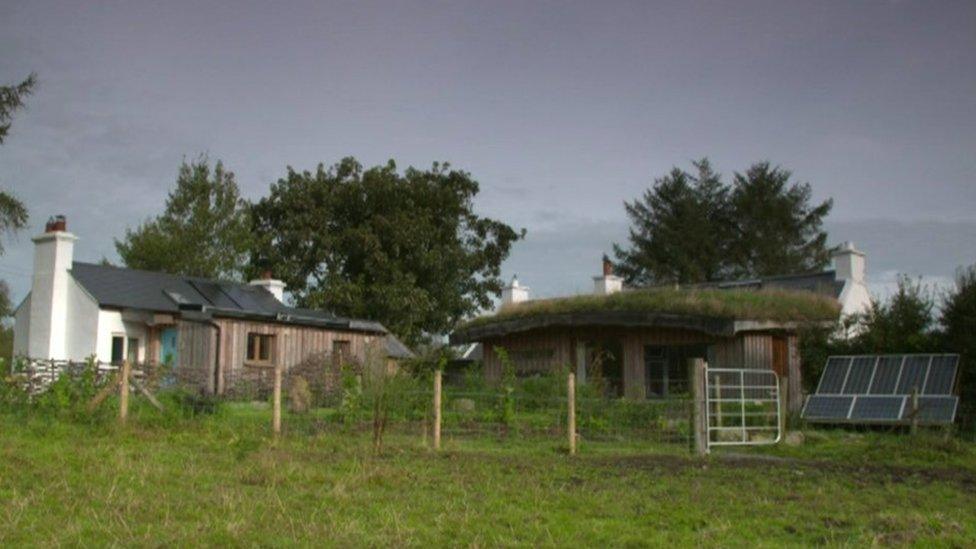
Visitors come to Lackan Cottage for workshops on off-grid living
Further cost-cutting measures include growing their own wood-fuel, harvesting rainwater and the recent installation of a homemade biogas unit that creates cooking gas from food waste.
"I don't think we go without anything because we're off-grid," said Steve.
"We have normal appliances, a warm home."
Steve says the family are "keen on resilience" with their current set-up having been built up over 10 years at an estimated cost of £10,000.
"You need to have a certain willingness to have a go and not be daunted by this stuff, and I am quite handy," he said.
"It's not for everyone though and if we'd had to pay people to come and do everything I dread to think what it would have cost."
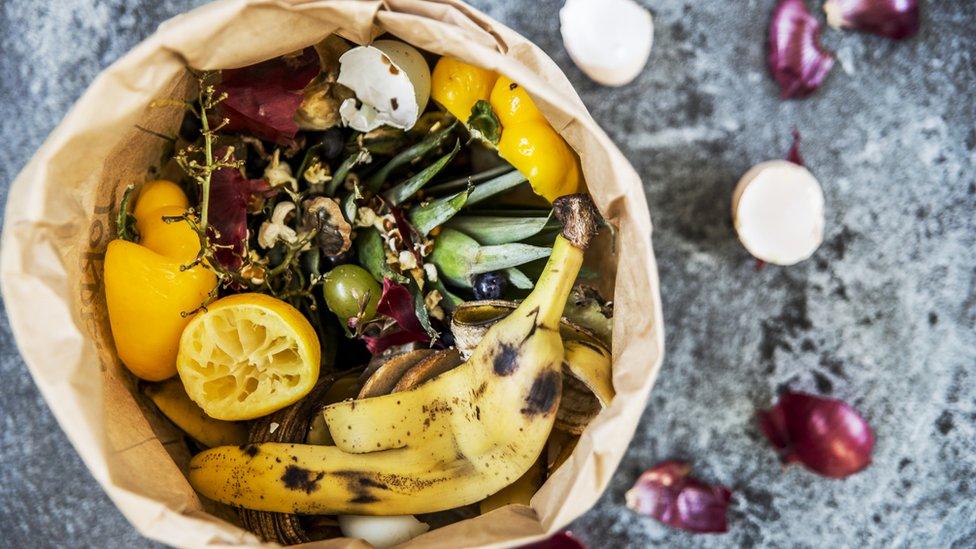
The Golemboski-Byrne family have experimented in creating biogas from food waste
While the family's energy costs may be lower than most, the cost-of-living crisis remains inescapable with soaring bills for bottled gas, car fuel, groceries and animal feed.
For those wanting to cut down their energy consumption, Steve says "do the boring stuff first".
"Insulate; make the most of south facing bits of your house; and have a good look around at all the small things plugged in on standby that are using power, it really does add up," he said.
Josh Boyd and Sophie Durand, both in their early 20s, live onboard Qisma - a 60ft by 6ft narrowboat on Lough Erne in County Fermanagh.
The pair are also in the process of converting another vessel to let.
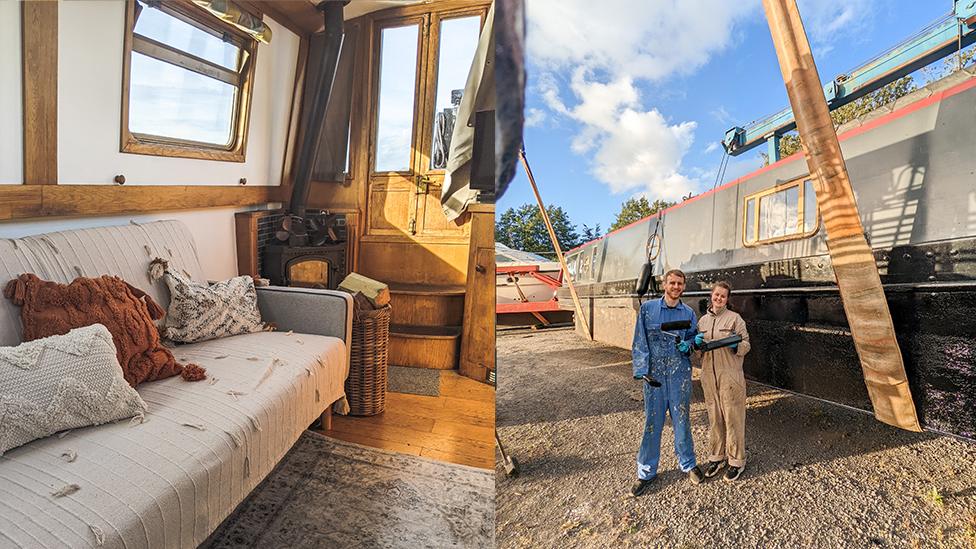
The couple bought a narrowboat after being inspired by those they saw at university in Stoke-on-Trent
They said they were motivated to escape the trappings of rent or a mortgage and looked into the tiny house movement before settling on the idea of life on the lough.
"We both went to the same university in Stoke-on-Trent which is renowned for the canals and narrowboats," Sophie said.
"We often wondered who lives on these boats and if it was a manageable way of living.
"This then spiralled into our keen interest of narrowboats, watching YouTube videos, reading blogs and following famous boaters across the UK."
'Heating a smaller space'
The couple were attracted to the idea of a way of living that would benefit their mental health, as well as their finances.
Taking a hybrid approach to their energy needs, Josh and Sophie use solar-powered batteries as much as possible in combination with a wood-burning stove.
With darker winter days, the couple utilise shore power outlets, which can prove challenging as they cannot remain moored for more than 48 hours.
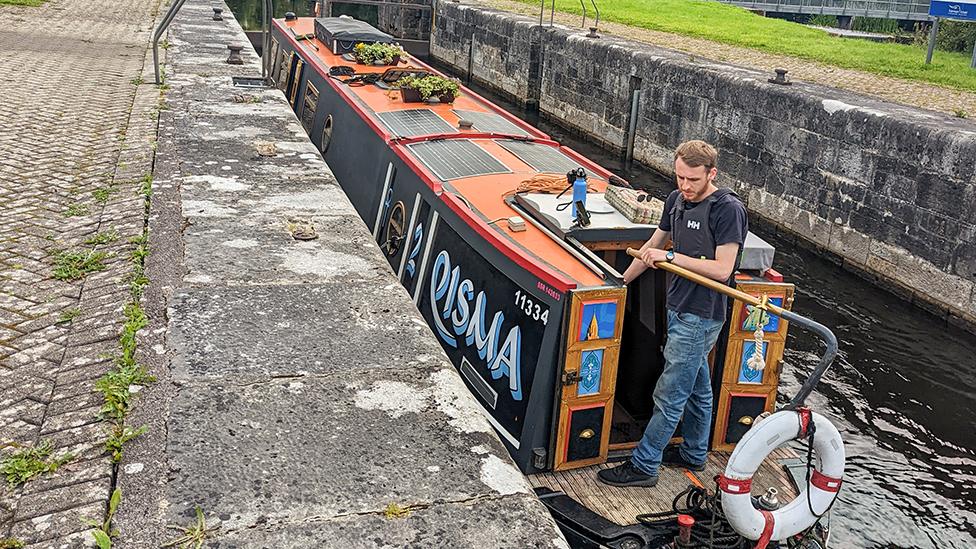
Sophie and Josh say it is far better having ducks and swans for neighbours
The couple said their energy costs can vary depending on the time of year but as they are heating and powering a smaller space, they would not use as much as the average consumer.
"Like everyone we have noticed the dramatic increase in the cost of living," said Sophie.
"Our food bill has risen along with everything else... we expect these costs to rise dramatically in the coming months.
"Everybody's situation is different but we have a few things we do to try and cut down on our energy usage.
"This first thing is to keep our solar panels clean to increase their efficiency.
"We only boil hot water when we need it for our showers or washing dishes and we turn off all appliances that aren't in use."
- Published30 September 2022
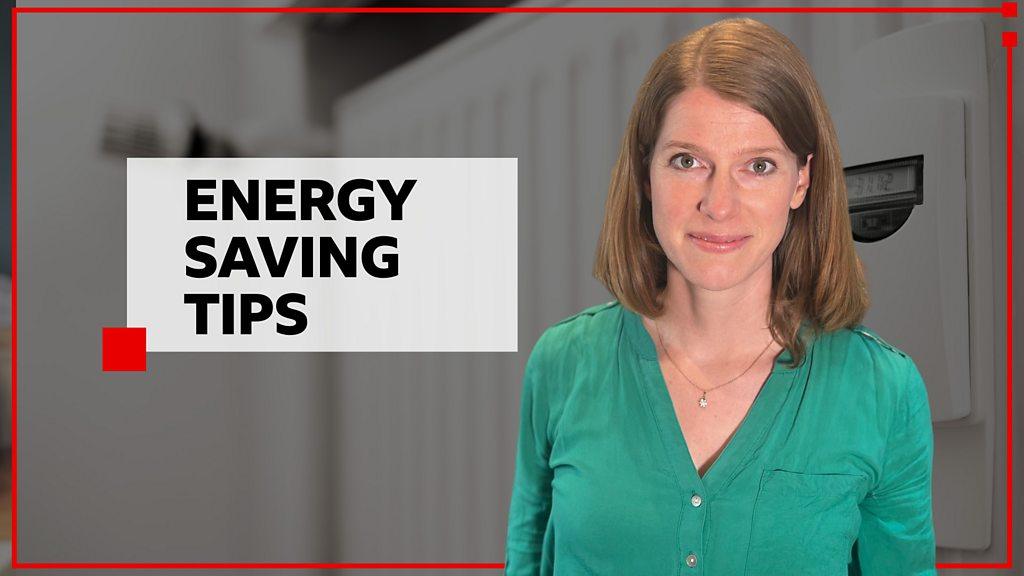
- Published22 September 2022
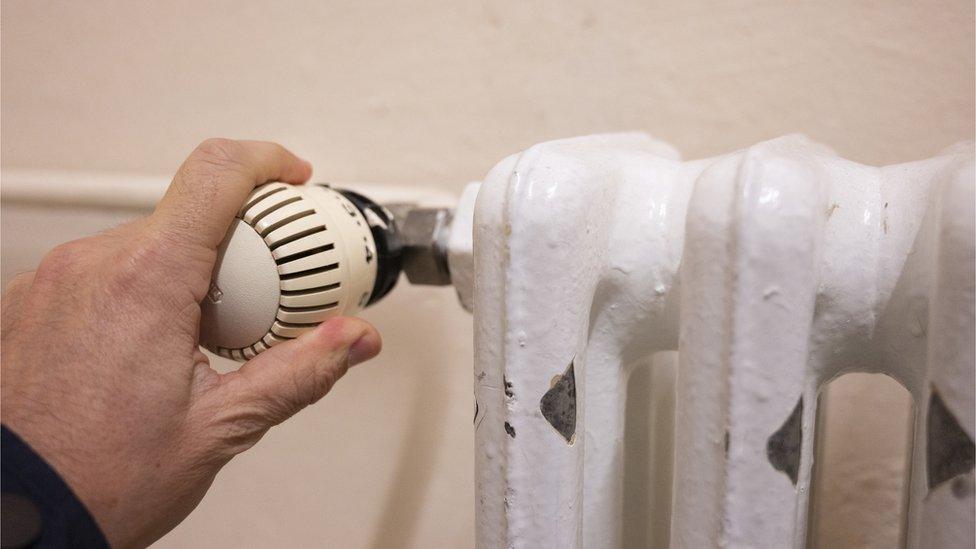
- Published20 September 2022
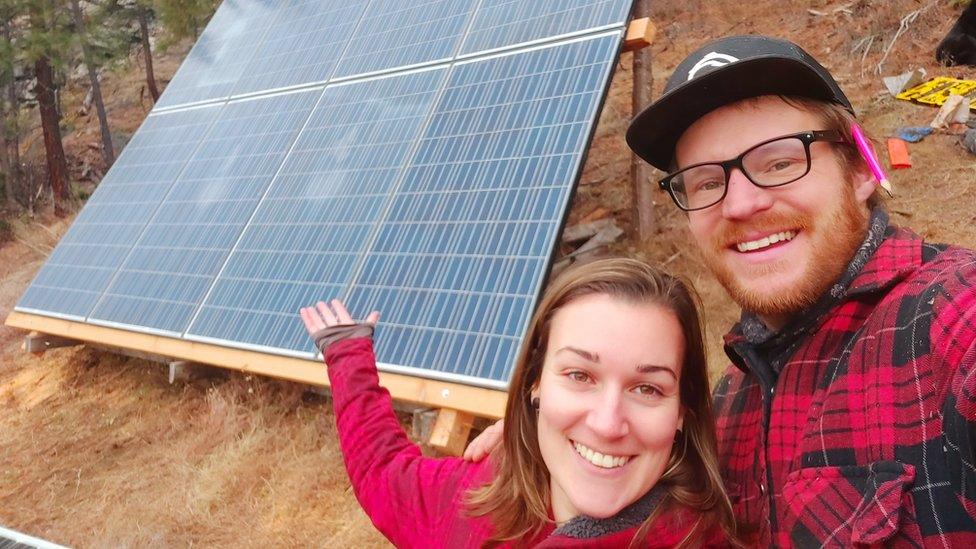
- Published28 August 2022
